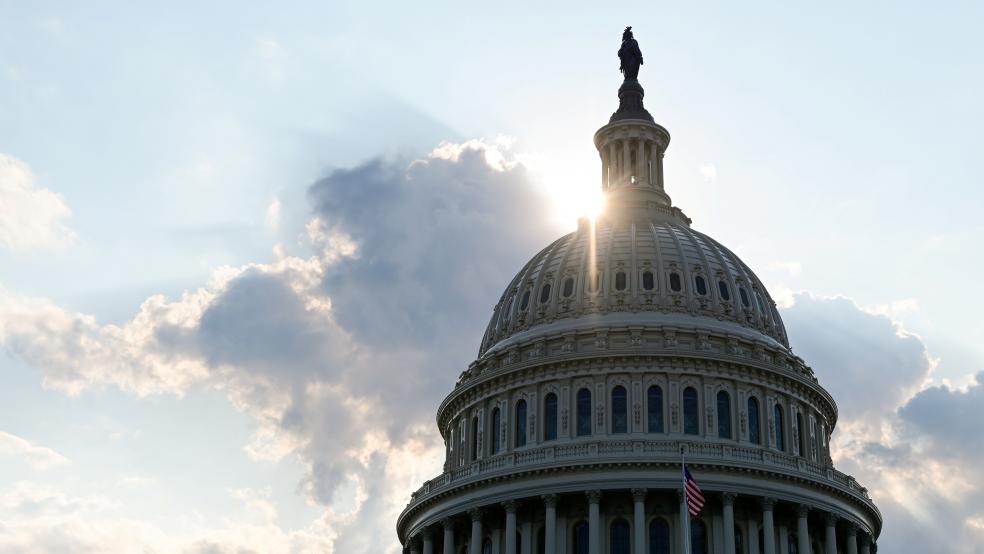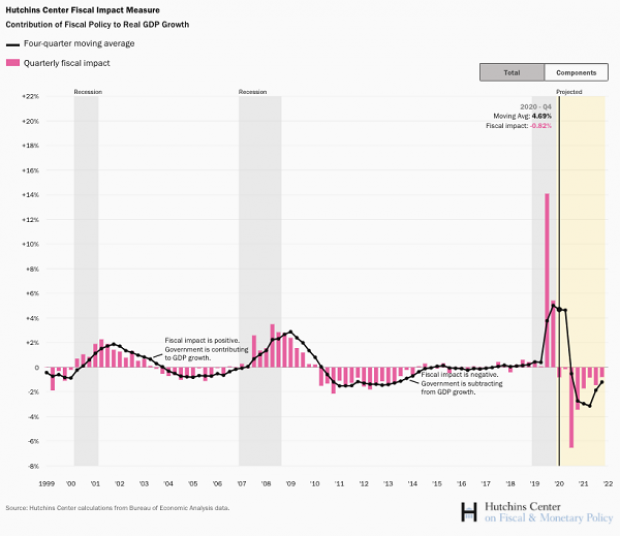Fiscal policies continued to have a powerful effect on the economy in the third quarter, boosting growth by 5.4 percentage points on an annualized basis, according to the latest Hutchins Center Fiscal Impact Measure, released Friday.
While the effects of government spending and tax policies were more pronounced in the second quarter, increasing growth by 14 points, the results for the third quarter were still exceptional, the second highest reading on the measure since 1973.
“Taxes, subsidies, and transfer programs account for the largest component of the increase in the FIM over the past two quarters,” Brookings’ Kadija Yilla and Louise Sheiner said Friday. “This category captures the boosts to consumption from the CARES Act’s payments to households and expanded unemployment benefits, as well as from the automatic stabilizers—the reduction in taxes and increases in unemployment and SNAP benefits that occur automatically when an economy falls into recession.”
Looking ahead, the analysts say that if lawmakers fail to pass another round of relief and stimulus, the effects of fiscal policy will reverse. “Without any additional stimulus, we project that fiscal policy will become a drag on economic growth in coming quarters,” they wrote.





